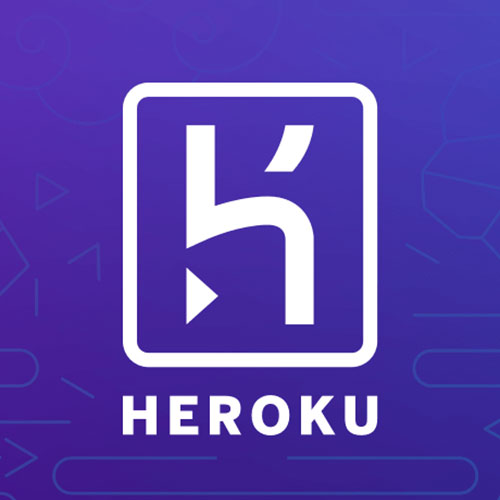
How I Built An App Around Habit Building As An Indie Developer [8,500 Users]
Hey, I’m Marc Lou! I’m 30 years old and I live in Bali with my Korean wife.

I was fired everywhere so I've decided to always work for myself. Even Tai Lopez fired me…
I build apps full-time because it’s fun and sometimes it pays the bills. Some of my flagships are HabitsGarden.com, IndiePa.ge, Make Landing, WorkbookPDF, ShipFast, GamifyList, ByeDispute, ZenVoice and DataFast.
Habits Garden has about 8,500 registered users and 70,000 habits have been completed! Revenue is steady at around $600/month (30% from the app stores, 70% from the web version)

Indie Page and Make Landing launched last month and both are getting good traction. The first made $1,200 and the latter $2,600 (April 2023).
What's your backstory and how did you come up with the idea?
In 2016 I believed I was the next Mark Zuckerberg (to my point, we have the same first name).
I built a Tinder for sports lovers, in the dark, in my bedroom, for a year. And got 0 users.
Every time I think something will work, it doesn’t. To fight this, I just turn my emotional brain off and set up a system.
Then I moved to South Korea, raised $100,000 with a friend and we built a machine learning algorithm to (try to) predict the price of flight tickets. The goal was to tell users when is the best time to buy their tickets.
Unfortunately, we barely had a prototype and didn’t go far, so I moved on.
After many other failures, I discovered Twitter and the community of makers building in public, sharing their code, revenue, etc…
I joined the movement at the end of 2021. I built lots of apps in a short amount of time. Most failed, but I was learning so much and making progress.
Also, it was the first time in my life I discovered my “tribe”. Pieter Levels, Tibo, and many other solopreneurs I relate to.
Take us through the process of building the first version of your product.
I’m a big fan of habit building, and how they compound over the years (BooksCalculator.com shows that if you read 15 minutes a day for a year, you will finish 19 books in a year!)
I’m also a (bad) developer and I love GitHub’s contribution board (365 gray grids that turn green if you’ve coded on that day)
If you aim to make $10,000/month, living anywhere in the world, with 0 employees, avoid vitamins. Find a niche and sell a painkiller for a tiny specific problem.
At that time, no habit tracker showed your consistency over the years in the shape of a 365-square grid, so I built it.
As I’ve spent too much time building useless products in the past, I force myself to build the simplest product with just one feature.

As a maker, it is very tempting to add many features to make the product look better. But it’s a loss of time. So I launched as soon as the core feature was ready.
Describe the process of launching the business.
I’m a self-taught developer so my tech stack is quite simple:
- Front-end: NextJS, TailwindCSS, and DaisyUI
- Back-end Heroku and MongoDB for the database
Also, I never test my code. I find it useless because I’m constantly shipping and removing features. All the time spent testing is time not spent testing the market.
I built the tracker in public on Twitter. I shared screenshots of the product and gave my followers early access.
That way, I got a lot of early feedback and didn’t build the wrong or useless features.
The OK version of the app was ready around March 2022. It took about 1 month to build a fully functional app, full-time, 6 days ago. If I were to rebuild this app today, it would take only a week.
I only launched a few months later in October, after iterating on the product to improve the conversion rate and figure out the pricing.
The launch process is usually the same for all the startups I build:
- Hacker News: Very techy but can go viral and generates a lot of traffic (Habits Garden went viral and got 12k visitors in a few hours)
- Product Hunt: Probably the best place to launch a startup, you get quality backlinks and lots of feedback
- Reddit: It’s hard to sell but if you crack the code, you’ll get a lot of traffic
Since launch, what has worked to attract and retain customers?
I’m a solo founder on a budget so I have to play smart.
First, I got early feedback by giving beta access as described above.
Then, I launch on popular platforms like Reddit, Hacker News, and Product Hunt. This part is important because I got brutal feedback. People aren’t trying to be kind, they just tell you what they think. It creates initial traction, gets you backlinks, and increases your domain rating.
Later, if the product is good, some magic happens. Users refer your product to friends, newsletters, and blogs that write about your app.
Lastly, I built mobile apps (iOS & Android) for the tracker and am still working on the ASO (App Store Optimization, or SEO for apps) because it’s free juice.
Also, there used to be a free plan for the tracker, which I removed in September 2022. Surprisingly, users started to value the product more than before which resulted in conversion growth.
How are you doing today and what does the future look like?
The startup is profitable and running at barely any cost. It gets some traffic from the app stores and word of mouth. The average LTV of a customer is ~ $40.
It’s easy to get traffic. However, it’s hard to get people to stick with the product, because it’s a vitamin and not a painkiller.
Currently, the project is on hold.
I’m not sure if I have the gut to go all in or just let it run by itself.
If I were to work again full-time on the app, I’d look for a partnership with productivity influencers. I think people are more likely to invest their time and money into a vitamin app if it’s been endorsed by their favorite creators.
Through starting the business, have you learned anything particularly helpful or advantageous?
Yes, and I’m still learning as I make mistakes. Here are a few takeaways:
1) Assumptions are usually wrong
Every time I think something will work, it doesn’t. To fight this, I just turn my emotional brain off and set up a system (tweet 3x a day, build 1 startup a month). Consistency will eventually make something work out.
2) Selling vitamins is hard
If you aim to make $10,000/month, living anywhere in the world, with 0 employees, avoid vitamins. The market is very competitive and people won’t value your product. Instead, find a niche and sell a painkiller for a tiny specific problem.
3) People don’t have time
It took 8 months to get 1,000 followers on Twitter. Then another 8 months to get 20,000. I realized how fast people ignore your content. Not clear? Too long? You’ll be ignored. Whether you’re writing, building apps, or teaching, go straight to the point and remove all the noise.
What platform/tools do you use for your business?
Mostly tech services:
- Vercel: hosting the front-end
- Heroku: hosting back-end
- MongoDB Atlas: database
- TailwindCSS +DaisyUI: styling
- Mailgun: transactional emails
- Stripe: payment processing
- CapacitorJS: runtime to turn HTML to mobile native apps (iOS & Android)
- AWS for other services like image hosting, CDN, etc…
- Plausible for analytics
What have been the most influential books, podcasts, or other resources?
- The #buildinpublic movement on Twitter: It’s a community of founders who create startups (usually bootstrapped) while sharing all the journey: revenue, tech stack, ups & downs
- The book Why We Sleep by Matthew Walker: I realized I was tired without knowing it. Fixing my sleep in a few weeks unlocked everything else (motivation, creativity, stress management)
- The book How To Fail At Everything by Scott Adams: it’s a masterpiece for entrepreneurs. It sets you up in the right mindset to keep grinding (hint: embrace failure)
Advice for other entrepreneurs who want to get started or are just starting out?
- Fix a problem you or your friends have. It’s much easier to enjoy the ups and downs when you’re working on something meaningful for people you care about.
- Build, ship, and move on fast. 98% of startups fail, yours is no exception. Don’t settle unless there is an obvious success (aka product-market fit).
- Find your tribe. You can avoid a lot of mistakes when you’re surrounded by people who’ve been there. Also, it’s good for your mind to connect with people who understand you. If you’re an entrepreneur, Twitter is a good place.
- Sleep well. Not only for your health but because we’re much more positive when well rested.
Where can we go to learn more?
- All my startups and revenue
- My writing about entrepreneurship: Twitter
If you have any questions or comments, drop a comment below!

Download the report and join our email newsletter packed with business ideas and money-making opportunities, backed by real-life case studies.

Download the report and join our email newsletter packed with business ideas and money-making opportunities, backed by real-life case studies.

Download the report and join our email newsletter packed with business ideas and money-making opportunities, backed by real-life case studies.

Download the report and join our email newsletter packed with business ideas and money-making opportunities, backed by real-life case studies.

Download the report and join our email newsletter packed with business ideas and money-making opportunities, backed by real-life case studies.

Download the report and join our email newsletter packed with business ideas and money-making opportunities, backed by real-life case studies.

Download the report and join our email newsletter packed with business ideas and money-making opportunities, backed by real-life case studies.

Download the report and join our email newsletter packed with business ideas and money-making opportunities, backed by real-life case studies.














